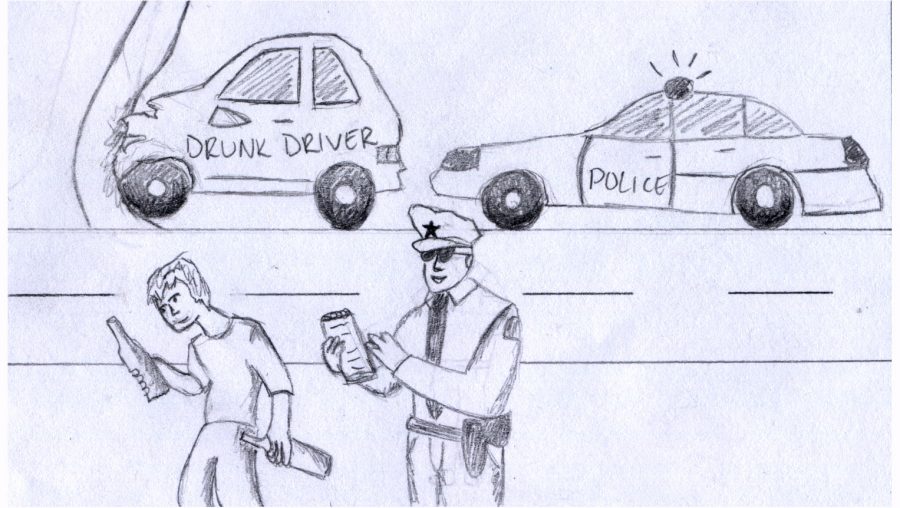April 2, 2014
Royal Purple Editorial Staff Opinion
Many statistics about drinking in Wisconsin get passed around social media as something to laugh about. For example, there is a graph showing that Wisconsin has more bars than grocery stores, and there is a statistic showing that Wisconsin has the highest binge drinking rate among 18 to 34 year-olds.
A few more grim statistics do not get as much attention: Wisconsin has the highest rate of drunk driving in the nation, according to a 2009 study by the U.S. Department of Health and Human Services. Drunk driving cost Wisconsin an estimated $500 million that year, according to the Wisconsin Department of Transportation.
Wisconsin also is the only state in the nation where first-time drunk driving is not a criminal offense.
It’s time for Wisconsin lawmakers to step up and stiffen penalties for drunk driving in order to help lower these sobering statistics.
On March 23, Wisconsin lawmakers failed to pass a bill that would have made first-time drunk driving a criminal offense. In the laws current state, first-time drunk driving is a municipal violation that comes with a ticket and a fine.
Since Wisconsin has one of the highest drunk driving rates, it would appear keeping the offense as a municipal violation is ineffective.
Wisconsin state legislature should reintroduce the bill, and it should add in other provisions as well.
In 2009, Wisconsin passed a law requiring ignition interlock for all first-time drunk drivers with a blood alcohol content over 0.15 at the time of their arrest. This was a step in the right direction, but ignition interlock should be a requirement for anyone with a drunk driving charge. Whether the BAC was 0.08 or 0.4, the driver still put lives in danger by getting behind the wheel.
In 2010, Utah ranked lowest in the nation with 16 percent of traffic deaths involving at least one person with a BAC over 0.08, according to findthedata.org. On the same list, Wisconsin ranked 37th at 36 percent. It is no coincidence that Utah has some of the strictest drunk driving laws in the entire country.
The laws in Utah include enforcement of DUI checkpoints, mandatory BAC testing for all drivers killed in traffic accidents, incentives for counties who enforce ignition interlock for first-time drunk drivers and mandatory alcohol treatment for people charged with DUI, according to Mothers Against Drunk Driving.
On the national level, a push to make drunk driving laws more stringent has been made as well. In 2013, the National Transportation Safety Board brought a proposal to Congress that would lessen the drunk driving BAC threshold to 0.05 nationally.
The move would not be unprecedented, as the limit of 0.08 was only recently adopted by all 50 states, with the last five states adjusting their limit in 2004.
Although the idea to change the BAC threshold to 0.05 has not gained much traction nationally, the movement shows that Wisconsin’s lenient policies on drunk driving are outdated.
In supporting their idea, Deborah Hernsman, the NTSB chairperson, said 440,000 people have died as a result of drunk driving over the last 30 years and how states further their legislation on drunk driving will affect their legacy in the next 30 years.
To reverse our legacy as a lenient drunk driving state, Wisconsin needs to make a strong effort to at least catch up to other states in the severity of penalties for DUI.
Over the last few years, the Wisconsin Department of Transportation has launched its campaign advocating for zero deaths on Wisconsin roadways.
Although the Zero in Wisconsin slogan has had some success and the “Drive Sober” app has had more than 44,000 downloads in the first year, it seems Wisconsin is avoiding the clear-cut best way to lower traffic deaths: make drunk driving laws more strict, and make first-offense drunk driving a severe crime.













